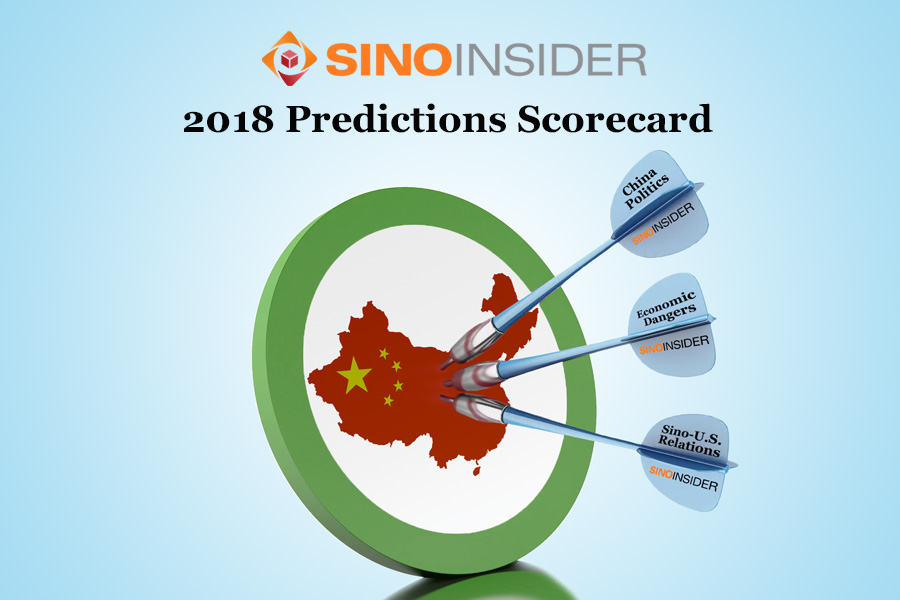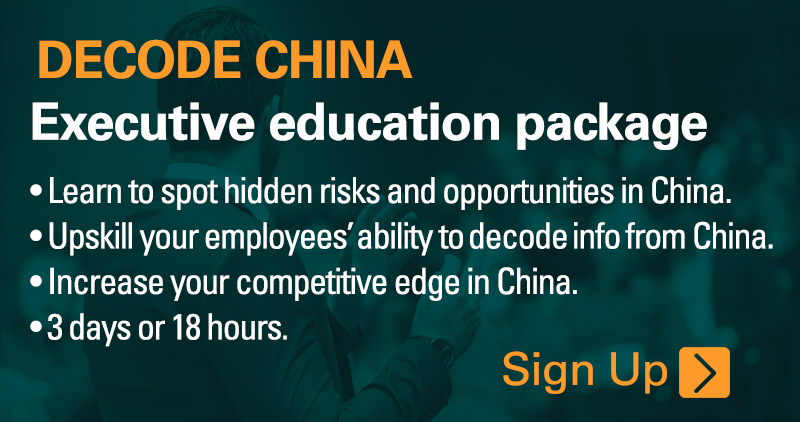◎ Part one of our 2018 forecasting review.
Imagine the risks you could avoid or the opportunities you could uncover from knowing that a Sino-U.S. trade war is “unavoidable” six months before tariffs were announced. Or how a January forecast that China’s economy will worsen over the year will affect your business decisions.
SinoInsider called the above developments and more in our China outlook for 2018 published on Jan. 2. Throughout the year, we also made other predictions with respect to China’s politics, economy, society, and geopolitics that have proven accurate as the year unfolded.
We present the first part of our forecasting scorecard for 2018.
The scorecard:
We addressed seven points in our 2018 China outlook and made 20 predictions. Seventeen out of the 20 predictions (85 percent accuracy) were verified over the course of the year. Two predictions (both on North Korea) have yet to be confirmed because the situation is still developing.
- Xi’s political challenge
1.1. What we said:
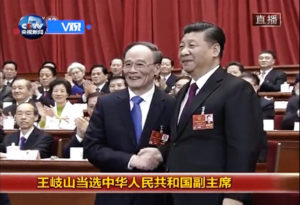
- “There is a good chance that Wang [Qishan] will be named vice president.”
What happened:
- Wang Qishan was named Chinese vice president at the Two Sessions on March 17.
- We were the first to predict Wang’s appointment in October 2017.
Forecast strength:
- Accurate; five months early.
1.2. What we said:
- “Xi has been calling on officials to guard against financial risks, protect the environment, and alleviate poverty … Social problems may intensify in 2018.”
What happened:
- Victims of peer-to-peer (P2P) lending platform failures have been holding protests in Beijing and outside local government offices virtually all year long. The recent spate of P2P failures are caused by new government deleveraging regulations which essentially transferred SOE and banking debts to the private sector and residents. (For more on P2P risks, see here)
Forecast strength: Accurate.
1.3. What we said:
- “To prevent Jiang faction officials from forming an opposition coalition, Xi will likely continue to reshuffle personnel on a large scale.”
What happened:
- A big round of personnel reshuffling took place during the Two Sessions and after with the introduction of Party and state institutional reforms.
- On Nov. 15, the Central Commission for Discipline Inspection announced the investigation of Jiangsu vice governor Miao Ruilin.
- In 2018, the authorities prosecuted 23 officials at the vice-ministerial level and above, including Yang Jing (12th Secretary General of the State Council), Nur Bekri (director of the National Energy Administration), and Meng Hongwei (vice minister in the Ministry of Public Security).
- After the Two Sessions in March to Dec. 15, the CCP reshuffled 111 Party and state officials (including five provincial Party secretaries, nine provincial deputy secretaries, nine Organization Department officials, seven propaganda officials, seven statistics bureau officials, three governors, and 16 deputy governors) and dismissed 45 officials (including three provincial Party secretaries, four provincial governors, and 12 deputy governors).
- As of Dec. 15, nine directors of the 16 national bureaus in the State Council were reshuffled.
Forecast strength: Accurate.
- Xi’s control over the military
2.1. What we said:
- “Xi will continue to reshuffle commanders.”
What happened:
- As of Dec. 15, at least 211 senior military officials were reshuffled, per publicly available data. Of the 211, five officials were reshuffled twice while one official was transferred three times.
- The reshuffle involved one full general, 17 lieutenant generals, 159 major generals, 25 colonels, and nine officials whose ranks were not identified.
- Taking up new posts were 42 commanders, 3 army commander, 23 chiefs of staff, 56 political commissars, 25 political department heads, and 21 staff in the Central Military Commission.
- Twenty-six military officials were transferred across service branches.
- All 31 provincial Party committees now have a PLA representative, the first time since the start of military reforms in 2015.
Forecast strength: Accurate.
2.2. What we said:
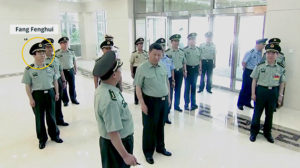
- “Fang Fenghui may be officially investigated. Another batch of Chinese generals could also be implicated.”
What happened:
- Fang Fenghui was officially investigated on Jan. 9 and expelled from the Party on Oct. 16.
- On July 10, Du Zhixian, commander of the Lanzhou garrison command, was placed under investigation by the Gansu discipline inspection authorities.
- In August, overseas Chinese language media reported that two senior generals—Western Theater Command deputy commander Liu Xiaowu and Eastern Theater Command deputy commander and chief of staff Yang Hui—were investigated. Another two generals—Deputy Chief of Joint Staff Xu Fenlin and Southern Theatre Command political commissar Wei Liang—were demoted and made to retire.
- Overseas Chinese language media reported on Nov. 29 that three generals—former PLA Navy commander Wu Shengli, former Nanjing Military Region commander Cai Yingting, and former CMC Equipment Development Department political commissar Wang Hongyao—were being investigated by the authorities.
Forecast strength: Accurate.
- China’s economic dangers
3.1. What we said:
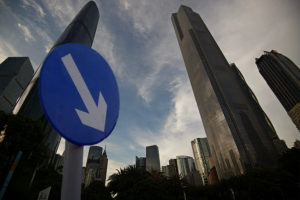
- “China will adopt more stringent measures to force financial institutions to step up deleveraging. The financial sector will also bear the brunt of anti-corruption investigations.”
What happened:
- On Jan. 13, the China Banking Regulatory Commission said that its priorities for 2018 include increasing supervision over shadow banking and interbank activities as part of financial de-risking and deleveraging.
- On Jan. 24, vice premier Liu He said at the Davos World Economic Forum that China will seek to bring its debt under control in three years.
- On Feb. 14, Anbang Group said that chairman Wu Xiaohui was unable to perform his duties due to personal reasons. On Feb. 23, the China Insurance Regulatory Commission (now the China Banking and Insurance Regulatory Commission) announced that Wu was being prosecuted for economic crimes, and that a working group headed by a top insurance regulator will oversee operations at Anbang for a year.
- In March 2018, the South China Morning Post reported that CEFC China Energy chairman Ye Jianming was being detained by the authorities and that an investment agency of the Shanghai municipal government had taken control of CEFC.
- On April 2, Xi Jinping said at the first meeting of the Central Committee for Financial and Economic Affairs that “local governments and enterprises, especially state-owned enterprises, must reduce their leverage as soon as possible” so as to “achieve a stable and gradual decline in the macro leverage ratio.”
- On April 17, the Central Commission for Discipline Inspection announced that China Huarong Asset Management chairman Lai Xiaomin was being investigated for disciplinary and legal violations. Lai was officially expelled from the Party on Oct. 15.
- On May 8, the Central Commission for Discipline Inspection and the National Supervisory Commission jointly announced that former Chinese vice minister of finance Zhang Shaochun was being investigated. A Beijing procuratorate initiated a public prosecution against him on Nov. 23, and Zhang pleaded guilty to bribery on Dec. 14.
- On Aug. 8, five government departments, including the National Development and Reform Commission and the People’s Bank of China, jointly issued a notice on reducing domestic enterprise leverage.
- On Sept. 28, the China Banking and Insurance Regulatory Commission new regulations to regulate wealth management products publicly sold by banks to curb shadow banking and reduce systemic financial risks.
Forecast strength: Accurate.
3.2. What we said:
- “China will strengthen the control of capital outflows.”
What happened:
- On Feb. 12, the China Insurance Regulatory Commission and the State Administration of Foreign Exchange release a joint decision to regulate insurance institutions to prevent the risk of asset transfers abroad and fraudulent remittances.
- On Dec. 6, SAFE issued the sixth report on foreign exchange violation for 2018. According to previously released data, SAFE had investigated 1,354 violation cases (up 19.7 percent YoY) in the first half of the year and issued fines worth 345 million yuan (up 59.5 percent YoY).
- On Dec. 8, SAFE chief accountant Sun Tianqi said at the 2nd Internet Finance Forum that his department had disposed of over 600 illegal foreign exchange websites in 2018.
Forecast strength: Accurate.
3.3. What we said:
- “China aims to indirectly lower transaction costs for the real economy and businesses.”
What happened:
- On May 17, the General Office of the State Council released an opinion on taking further action to cut down on the start-up time for enterprises.
- On July 19, the State Council decided that 17 administrative permits no longer will be required, and that a new negative list will be issued.
- On Aug. 5, the General Office of the State Council issued a notice on “deepening reform” to simplify government administrative procedures.
Forecast strength: Accurate.
3.4. What we said:
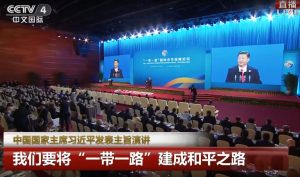
- “China will accelerate the implementation of its Belt and Road Initiative, internationalize the RMB, and invest in its tech economy (5G networks, artificial intelligence, big data, semiconductors, etc.)”
What happened:
- While Beijing has been actively courting countries to join the Belt and Road Initiative, its momentum appears to be blunted following a shift in U.S. policy towards China.
- The Made in China 2025 program has also been challenged with ZTE being placed under “probation” in July and with the detention of Huawei CFO Meng Wanzhou in Vancouver in December.
- However, China has persisted in its expansionist efforts throughout the year:
- In early September, Huawei and Monaco Telecom sign a 5G cooperation agreement. Later in the month, Italian operators TIM and Fastweb put the first 5G base station (complying with 3GPP standards) featuring Huawei equipment into use.
- On Dec. 6, Huawei signed a memorandum of understanding with Altice to upgrade Portugal’s largest telecom network into the 5G standard by 2019. Altice is Huawei’s 23rd global 5G network client (15 in Europe, five in the Middle East, three in Asia).
- Per a report in the China Economic Weekly magazine, in the first half of 2018, China’s new investments in the 55 participating Belt and Road countries increased by $7.4 billion, or a 12 percent increase year-on-year. Meanwhile, the contract value of new foreign projects during that period was $47.79 billion, or 44.8 percent of total contracts.
- Between July to December, Xi Jinping left the country four times to visit 13 countries and participate in high-profile meetings of world leaders such as the BRICS, APEC, and the G20 summits.
- Xi and other Chinese officials promoted the Belt and Road initiative during their travels. Senegal was added to the list of Belt and Road countries in July, and Singapore signs a deal to strengthen cooperation with China on the initiative in April.
- On June 7, China’s Ministry of Industry and Information Technology releases plans to build infrastructure for industrial internet and industrial systems by 2020.
Forecast strength: Accurate.
3.5. What we said:
- “Danger is imminent if the People’s Bank of China frequently decreases reserve requirements.”
What happened:
- The PBoC cuts reserve requirements four times in 2018 (January, April, July, October) and released almost 3 trillion yuan worth of long-term funding (medium-term funding facilities, etc.).
Forecast strength: Accurate.
- Legal reforms
4.1. What we said: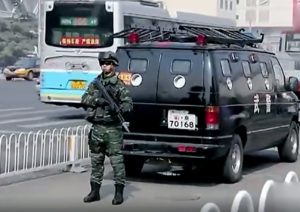
- “Officials from the legal and domestic security apparatus will likely be purged as Xi reforms the system.”
What happened:
- On Oct. 7, the Party’s anti-corruption agency announced that public security vice minister and Interpol chief Meng Hongwei was being investigated.
- As of Dec. 15, at least 107 officials in the political and legal affairs apparatus have been dismissed or investigated based on publicly available information, including one provincial public security bureau chief; 57 city, county, and district public security bureau chiefs or deputy chiefs; 17 city, county, and district chief justices or deputy chief justices; 15 city, county, and district deputy procurator generals; two deputy procurator generals at the Supreme People’s Procuratorate, and two members of the Supreme People’s Procuratorate Party committee.
Forecast strength: Accurate.
4.2. What we said:
- “The Xi administration has emphasized the need to redress past ‘miscarriages of justice,’ and could continue to overturn prominent misjudged cases.”
What happened:
- On May 31, the Supreme People’s Court threw out the fraud case of retail tycoon Zhang Wenzhong. Zhang, the chairman of one of China’s biggest chains Wumart Stores Inc., was released in February after serving 12 years in prison on charges of improperly obtaining government subsidies.
- On Feb. 11, the Jiangxi Jiujiang Intermediate People’s Court ruled that Gongqing Cheng Cellon Communications Technology, the biggest cellphone research and development company in China, was not guilty of a 2017 charge of tax evasion.
- On April 20, the Jilin High People’s Court acquitted 50-year-old Liu Zhonglin of murder. Liu had previously been jailed for 25 years.
- On June 13, the Supreme People’s Court reopened a 2005 case tried in a lower court which convicted Gu Chujun, the chairman of refrigerator maker Guangdong Kelon Electrical Holdings, and jailed him for seven years. Prosecutors found that Gu was not guilty of two of the three counts that he was originally charged with. Gu’s case is still being heard.
- On Nov. 30, the Jilin High People’s Court exonerated 50-year-old Jin Zhehong of homicide in 1995. Jin had previously spent 23 years in jail, went through four retrials, and was handled four death sentences.
Forecast strength: Accurate.
4.3. What we said:
- “The human rights situation in China won’t improve as long as the CCP remains in charge. If there is a need to tighten control over the society, Chinese officials will resort to greater repression and worsen the state of human rights.”
What happened:
- Based on accounts in overseas Chinese language media and Chinese social media, CCP control over society has tightened considerably on the whole in 2018.
- The authorities in Xinjiang stepped up the persecution of Uyghur Muslims in 2018. The authorities use on the Uyghurs brainwashing and torture methods similar to that administered to Falun Gong practitioners in an effort to force members of the Turkic minority to abandon their faith. A United Nations human rights panel said in August that up to 1 million Uyghurs are believed to be held in a secretive system of “internment camps.”
- Local governments in Henan, Zhejiang, Sichuan, and elsewhere in China escalate a crackdown on Christians. Most prominently, the authorities detained at least 80 members (including the pastor) of Early Rain Covenant Church in Chengdu City, Sichuan Province on Dec. 9.
- Local security authorities in northeastern China launch a concentrated suppression of Falun Gong in late 2018. A document by the Liaoning 610 Office calls for proactive measures to target Falun Gong practitioners in a campaign scheduled from October 2018 to March 2019.
- Between January to November 2018, at least 4,483 Falun Gong practitioners were arrested by the authorities, according to the Falun Gong-run Minghui.org.
Forecast strength: Accurate.
- Military build up
5.1. What we said:
- China will “will persist in constructing islands in the South China Sea that can double up as military outposts. China will also accelerate the construction and development of aircraft carriers and carrier technology.”
What happened:
- China continued to militarize the South China Sea by adding infrastructure to its seven artificial islands. In May, CNBC reported that anti-ship cruise missiles and surface-to-air missile systems had been installed on three of the islands, while the PRC revealed that its bombers had conducted take-off and landing training on some of the islands.
- The PLA Navy’s second aircraft carrier reportedly begins sea trials in August. In November, Xinhua reveals that a “new-generation” carrier is currently under construction.
Forecast strength: Accurate.
5.2. What we said:
- “China will actively seek to establish more overseas bases in the region stretching from the Indian Ocean to East Africa.”
What happened:
- On Jan. 3, the Washington Times reported that China is constructing a second overseas military base in Jiwani, Pakistan. The Jiwani base will be a joint naval and air facility, and is a short distance away from the Chinese-built commercial port facility at Gwadar.
Forecast strength: Accurate.
5.3. What we said:
- “The CCP fears that the docking of U.S. naval warships in Taiwan could lead to a blockade of China. Pro-Taiwan independence forces may start becoming more active as the possibility of American warships sailing into Taiwan increases. Meanwhile, the People’s Liberation Army Air Force will continue to intimidate Taiwan by flying patrols close to the island.”
What happened:
- Between April and May, China mobilized fighters and bombers on at least six occasions for drills around Taiwan.
- On May 11, two Chinese naval vessels, the destroyer “Ningbo” (Type 139) and patrol ship “Xiangtan” (Type 054A), circumnavigated Taiwan, according to Taiwanese media.
- Starting on June 17, PLA Navy warships began holding daily combat drills in waters near Taiwan for more than a week.
- On June 20, the “Huanggang” frigate (Type 054A) and “Jinan” destroyer (Type 052C) sailed down the Taiwan Strait to the Bashi Channel.
- On July 20 and July 21, over 40 Chinese warships sailed through the Taiwan Straits.
Forecast strength: Accurate.
- Sino-U.S. relations
6.1. What we said: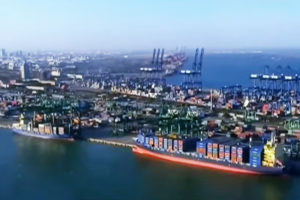
- If Wang Qishan indeed becomes vice president and serves as Xi’s representative to the U.S., the impact of the impending trade war may be lessened.
What happened:
- Wang became vice president, but was never directly involved in trade affairs. His meeting with top Wall Street executives in September revealed a lack of understanding about Trump, according to The Financial Times.
- We believe that Xi Jinping did not task Wang Qishan with the trade issue to “protect” him from potential failure and domestic backlash. For instance, vice premier Liu He was targeted by veiled criticism during the first round of Sino-U.S. trade negotiations, and saw Trump announce tariffs weeks after he announced that China and the U.S. had agreed to back away from tariffs.
Forecast strength: Partially accurate.
6.2. What we said:
- “Trump is likely engaged in a strategic chess game with China. He will likely continue to be friendly with Xi while attacking China.”
What happened:
- U.S. policy on China shifted prominently from engagement to rivalry in 2018. Washington appears to be targeting China not just on trade, but on cybersecurity, espionage, military expansion, intellectual property theft, and other areas in a whole-of-government effort.
- On Dec. 4, U.S. Secretary of State Mike Pompeo gave a speech about the U.S. reshaping the post-WWII world order, and criticized China for “undermining the international order.” In a radio interview on Dec. 10, Pompeo said that “China presents the greatest challenge that the United States will face in the medium to long-term.”
- Trump has been consistent on Twitter, in speeches, and on the campaign trail in praising Xi and talking up their relationship while criticizing China on trade and other issues.
Forecast strength: Accurate.
- North Korea
7.1. What we said: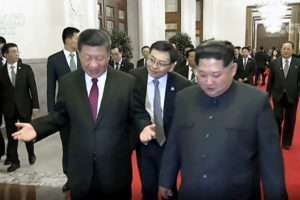
- “Kim Jong Un won’t give up his nuclear weapons.”
- “If America moves into North Korea, China will have to cooperate with the U.S. to seize North Korea’s nuclear weapons and exert its influence on the North Korean leadership in the event of regime change.”
What happened:
- Kim’s historic Beijing trip in March made us re-evaluate our prediction and take the exact opposite position. For more, see Part 2 of our 2018 forecasting review.
Forecast strength: Not confirmed; developments still underway.
Get smart:
SinoInsider can forecast China and China-related geopolitical issues with a high degree of accuracy because we deeply understand the Chinese Communist Party and its operations.
Businesses and policymakers who are looking to surpass the competition stand to gain a winning advantage with our consulting services, training courses, and premium newsletter.
